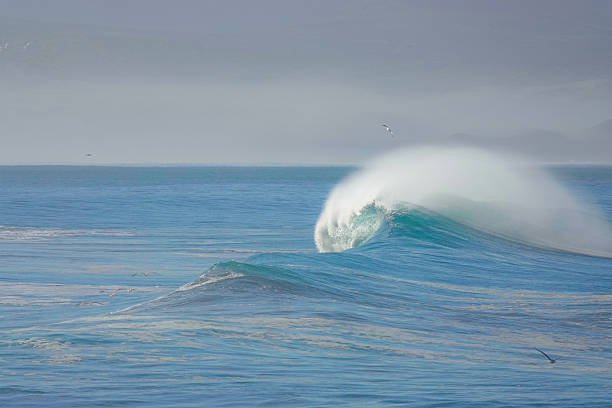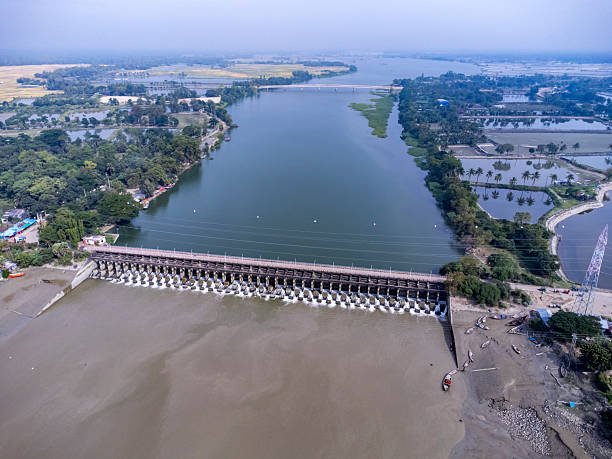Research Topics Related to Oceanography
Oceanography is the scientific study of the oceans, covering their physical, chemical, biological, and geological properties. As more than 70% of the Earth’s surface is covered by water, understanding ocean processes is essential for tackling challenges related to climate change, marine biodiversity, natural disasters, and sustainable resource management.
If you are searching for research topics related to oceanography, this comprehensive guide explores various branches of ocean science, including physical, chemical, biological, and geological oceanography. Each section contains well-classified research ideas suitable for students, researchers, and professionals looking to contribute to marine science and global sustainability.
Physical Oceanography Research Topics
Physical oceanography studies the motion and properties of ocean waters, including tides, currents, waves, and interactions between the ocean and the atmosphere.
- Ocean circulation patterns and their influence on global climate
- The role of ocean currents in carbon sequestration
- Modeling sea surface temperature variations
- Impacts of El Niño and La Niña on coastal environments
- Wind-driven circulation in the Atlantic Ocean
- The physics of ocean waves and energy dissipation
- Seasonal and regional variability of ocean currents
- Ocean-atmosphere interactions in tropical cyclones
- Satellite remote sensing for ocean dynamics monitoring
- Predicting coastal upwelling systems and their ecological effects
Chemical Oceanography Research Topics
Chemical oceanography focuses on the chemical composition of seawater and the processes that control the distribution of chemical elements in the ocean.
- Ocean acidification and its impact on marine ecosystems
- Chemical interactions between seawater and sediments
- The carbon cycle in the world’s oceans
- Trace metals and their role in marine biogeochemistry
- Nutrient dynamics in coastal and open ocean waters
- Sources and sinks of dissolved organic carbon
- The effects of ocean deoxygenation on marine life
- Biogeochemical cycling of nitrogen and phosphorus in marine systems
- Chemical pollutants and microplastics in the ocean
- Impacts of oil spills on ocean chemistry and recovery processes
Biological Oceanography Research Topics
Biological oceanography examines the life forms in the ocean, their distribution, and how they interact with their environment.
- Marine biodiversity and its response to climate change
- The role of phytoplankton in the oceanic carbon cycle
- Deep-sea ecosystems and species adaptation mechanisms
- Coral reef ecology and conservation strategies
- Oceanic primary productivity and food web dynamics
- The impact of ocean pollution on marine organisms
- Effects of rising sea temperature on fish migration patterns
- Marine microbial ecology and biogeochemical processes
- Genetic diversity in marine species and evolutionary patterns
- Conservation of endangered marine species and habitats
Geological Oceanography Research Topics
Geological oceanography focuses on the structure, composition, and evolution of the ocean floor and coastal landforms. It helps scientists understand the Earth’s geological history and processes shaping the seafloor.
- Formation and evolution of mid-ocean ridges
- Plate tectonics and seafloor spreading dynamics
- Marine sediments as indicators of past climate changes
- Submarine volcanoes and hydrothermal vents
- Coastal erosion and sediment transport processes
- Seafloor mapping using sonar and remote sensing technologies
- The role of ocean basins in continental drift
- Paleoclimatic reconstruction using ocean sediment cores
- Tsunami formation and propagation modeling
- Geological hazards in coastal and marine environments
Marine Ecology and Conservation Research Topics
This field focuses on the relationship between marine organisms and their environment, as well as conservation of marine biodiversity.
- Marine protected areas (MPAs) and their effectiveness
- The impact of overfishing on marine biodiversity
- Ecological restoration of degraded coral reefs
- The role of mangroves and seagrasses in coastal protection
- Ocean pollution and its effect on food security
- Conservation strategies for endangered marine species
- Marine ecosystem services and economic valuation
- Climate resilience of coastal ecosystems
- The role of ocean governance in biodiversity protection
- Integrating traditional knowledge into marine conservation practices
Climate Change and Oceanography Research Topics
Oceans play a vital role in regulating Earth’s climate. Research in this area focuses on understanding the ocean’s role in absorbing heat, carbon dioxide, and other greenhouse gases.
- Ocean heat uptake and global warming
- The role of oceans in mitigating climate change
- Melting ice sheets and their impact on ocean circulation
- Changes in sea level and coastal flooding risks
- Ocean carbon sequestration mechanisms
- The effects of climate change on marine ecosystems
- The role of the Southern Ocean in global heat balance
- Modeling future oceanic climate scenarios
- Long-term monitoring of sea surface temperature trends
- Ocean-based renewable energy solutions and climate mitigation
Ocean Technology and Remote Sensing Research Topics
Advancements in ocean technology have revolutionized the study of marine environments. Research in this field helps improve data collection, mapping, and environmental monitoring.
- Applications of satellite remote sensing in ocean monitoring
- Autonomous underwater vehicles (AUVs) for ocean exploration
- Development of ocean sensors for real-time data collection
- Using AI and machine learning in ocean data analysis
- Sonar mapping for deep-sea exploration
- Underwater robotics and marine habitat assessment
- Data-driven modeling for ocean current prediction
- Real-time tsunami warning systems
- Integration of drones in coastal and marine studies
- The role of big data in oceanographic research
Conclusion
Oceanography is a dynamic field that connects Earth’s systems—climate, atmosphere, and life itself. By exploring ocean currents, chemistry, marine life, and seafloor structures, researchers can uncover critical insights that influence global sustainability and environmental protection.
Whether your interest lies in climate change, marine biodiversity, or underwater technology, oceanography offers endless research opportunities that contribute to the future of our planet. Selecting a topic that aligns with your passion and global challenges ensures your research will have both scientific and societal impact.
FAQs About Oceanography Research Topics
1. What is the importance of studying oceanography?
Oceanography helps us understand the oceans’ role in climate regulation, resource management, and biodiversity conservation. It also provides solutions to issues like sea-level rise, pollution, and sustainable marine use.
2. What are the main branches of oceanography?
The main branches are physical, chemical, biological, and geological oceanography. Each branch focuses on different aspects of ocean systems and processes.
3. How do I choose a good oceanography research topic?
Choose a topic that interests you and aligns with current global issues such as climate change, pollution, or sustainable resource management. Also, ensure data and research materials are accessible.
4. What are trending topics in oceanography research?
Trending topics include ocean acidification, plastic pollution, deep-sea exploration, marine renewable energy, and the impacts of climate change on marine ecosystems.
5. Can oceanography research contribute to climate action?
Yes. Oceanography plays a critical role in understanding carbon storage, sea-level rise, and heat distribution, which are key factors in combating climate change.
ALSO READ: Research Topics Related to Hydrology







One Comment